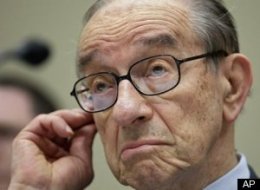
Congress looked serious about finance reform – until America's biggest banks unleashed an army of 2,000 paid lobbyists.
It's early May in Washington, and something very weird is in the air. As Chris Dodd, Harry Reid and the rest of the compulsive dealmakers in the Senate barrel toward the finish line of the Restoring American Financial Stability Act – the massive, year-in-the-making effort to clean up the Wall Street crime swamp – word starts to spread on Capitol Hill that somebody forgot to kill the important reforms in the bill. As of the first week in May, the legislation still contains aggressive measures that could cost once-
indomitable behemoths like Goldman Sachs and JP Morgan Chase tens of billions of dollars. Somehow, the bill has escaped the usual Senate-whorehouse orgy of mutual back-scratching, fine-print compromises and freeway-wide loopholes that screw any chance of meaningful change.
The real shocker is a thing known among Senate insiders as "716." This section of an amendment would force America's banking giants to either forgo their access to the public teat they receive through the Federal Reserve's discount window, or give up the insanely risky, casino-style bets they've been making on derivatives. That means no more pawning off predatory interest-rate swaps on suckers in Greece, no more gathering balls of subprime shit into incomprehensible debt deals, no more getting idiot bookies like AIG to wrap the crappy mortgages in phony insurance. In short, 716 would take a chain saw to one of Wall Street's most lucrative profit centers: Five of America's biggest banks (Goldman, JP Morgan, Bank of America, Morgan Stanley and Citigroup) raked in some $30 billion in over-the-counter derivatives last year. By some estimates, more than half of JP Morgan's trading revenue between 2006 and 2008 came from such derivatives. If 716 goes through, it would be a veritable Hiroshima to the era of greed.
"When I first heard about 716, I thought, 'This is never gonna fly,'" says Adam White, a derivatives expert who has been among the most vocal advocates for reform. When I speak to him early in May, he sounds slightly befuddled, like he can't believe his good fortune. "It's funny," he says. "We keep waiting for the watering-down to take place – but we keep getting to the next hurdle, and it's still staying strong."
In the weeks leading up to the vote on the reform bill, I hear one variation or another on this same theme from Senate insiders: that the usual process of chipping away at key legislation is not taking place with its customary dispatch, despite a full-court press by Wall Street. The financial-services industry has reportedly flooded the Capitol with more than 2,000 paid lobbyists; even veteran members are stunned by the intensity of the blitz. "They're trying everything," says Sen. Sherrod Brown, a Democrat from Ohio. Wall Street's army is especially imposing given that the main (really, the only) progressive coalition working the other side of the aisle, Americans for Financial Reform, has been in existence less than a year – and has just 60 unpaid "volunteer" lobbyists working the Senate halls.
Continue reading - Matt Taibbi - Wall Street's War




